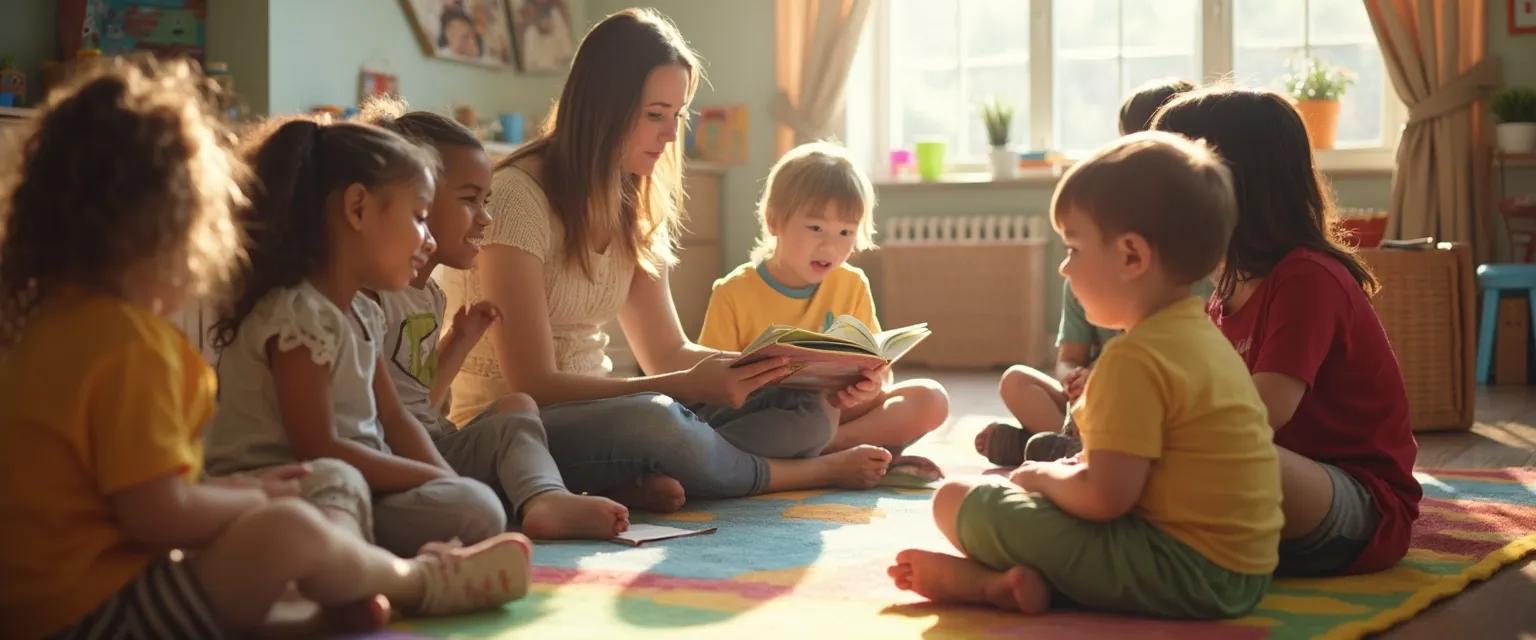Nurturing Self-Awareness in Early Childhood Education Through Storytelling
Developing self-awareness in early childhood education lays the foundation for children's emotional intelligence and social skills. When preschool teachers harness the power of storytelling, they create magical opportunities for young minds to explore emotions, identity, and relationships in a safe, engaging environment. Stories serve as mirrors reflecting children's experiences and windows into diverse perspectives, making them perfect tools for nurturing self-awareness in early childhood education.
Research consistently shows that children who develop strong self-awareness during their formative years demonstrate better academic performance, healthier relationships, and enhanced problem-solving abilities later in life. Through carefully selected stories and thoughtful facilitation, teachers create opportunities for young children to recognize emotions, understand personal strengths, and develop confidence-building techniques that will serve them throughout their lives.
When educators prioritize self-awareness in early childhood education, they equip children with emotional vocabulary and reflective skills that become lifelong assets. Storytelling offers an accessible, developmentally appropriate pathway to these crucial capabilities.
Selecting Stories That Promote Self-Awareness in Early Childhood Education
The foundation of effective self-awareness in early childhood education through storytelling begins with thoughtfully chosen books. Look for stories featuring characters who experience and express a range of emotions, face challenges, and demonstrate personal growth. Books like "The Color Monster" by Anna Llenas, "Ruby Finds a Worry" by Tom Percival, and "I Like Myself!" by Karen Beaumont exemplify texts that normalize emotional experiences while celebrating individual differences.
When selecting materials to support self-awareness in early childhood education, ensure they include diverse characters across cultures, abilities, family structures, and life experiences. This diversity helps children recognize both their uniqueness and their connections to others. Research indicates that when children see themselves represented in stories, they develop stronger self-concept and stress management skills.
Consider these criteria when building your self-awareness in early childhood education book collection:
- Age-appropriate emotional complexity
- Characters who demonstrate self-reflection
- Stories that validate a range of feelings
- Narratives showing characters learning from mistakes
- Books depicting diverse ways of being and belonging
Remember that even simple stories can prompt profound discussions about feelings, choices, and personal qualities when facilitated with intention and sensitivity.
Interactive Storytelling Techniques to Enhance Self-Awareness in Early Childhood Education
Transforming story time into an interactive experience dramatically amplifies its impact on self-awareness in early childhood education. Rather than simply reading to children, engage them as active participants in the narrative journey. Use different voices for characters, incorporate gestures, and invite children to predict what might happen next.
Puppets and props serve as powerful tools for extending self-awareness in early childhood education through stories. When children manipulate character puppets or wear emotion masks, they physically embody different perspectives and feelings, strengthening their emotional recognition skills and emotional regulation abilities.
After reading, facilitate discussions with open-ended questions that connect the story to children's lives:
- "How do you think the character felt when...?"
- "Have you ever felt the way this character did?"
- "What could you do if you felt this way?"
- "What makes you special like the character in our story?"
Extend the learning beyond story time by creating opportunities for children to revisit key self-awareness in early childhood education concepts through art, dramatic play, and daily classroom interactions.
Measuring Growth in Self-Awareness Through Early Childhood Education
Effective self-awareness in early childhood education programs include thoughtful assessment strategies to track children's progress. Look for indicators such as children spontaneously using emotion vocabulary, demonstrating empathy toward peers, recognizing their own feelings, and talking about personal preferences and strengths.
Document growth through observation notes, collections of children's drawings or dictated stories, and photographs of children engaged in self-awareness activities. These authentic assessment tools provide valuable evidence of development while respecting the unique nature of self-awareness in early childhood education.
Share children's progress with families through regular communication, highlighting how storytelling activities at home can further support self-awareness in early childhood education. When teachers and families partner in nurturing children's emotional intelligence, the impact extends far beyond the classroom, creating a foundation for lifelong emotional wellness and healthy relationships.




